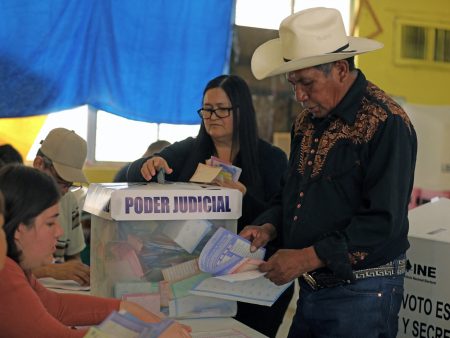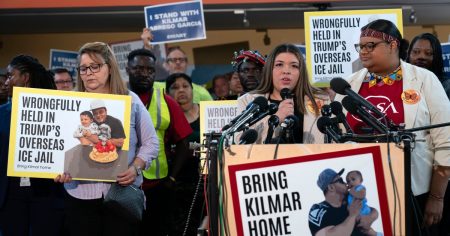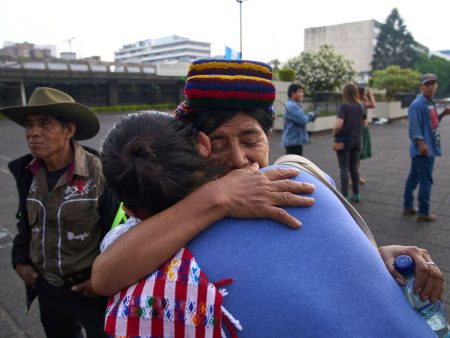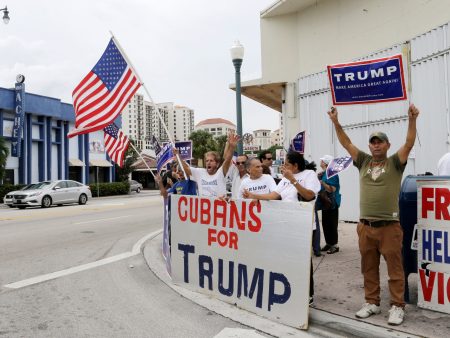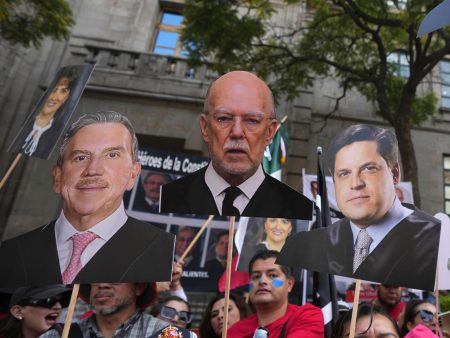On November 25, at approximately 2 AM, I was abruptly awakened by the sound of gunfire in Culiacan, Sinaloa, a city notorious for its association with the Sinaloa drug cartel. The violent outburst lasted about twenty minutes, foreshadowing the chaos that would unfold throughout the day. Media outlets reported multiple fatalities and violent incidents, including a house fire and damage to numerous security cameras and businesses. By November 26, the situation escalated further, with five tortured bodies left outside the Autonomous University of Sinaloa and more subsequent discoveries, marking the continuation of a brutal cartel war that has plagued the region since early September and has claimed over 425 lives statewide.
The surge in violence was reportedly sparked by the arrest of cartel co-founder Ismael “El Mayo” Zambada, who faced charges in New York City. This controversy highlighted a troubling hypocrisy within U.S. drug policy, which has historically failed to address its own role as a significant contributor to drug trafficking. Despite the apparent aim of the so-called “War on Drugs,” the United States has largely fueled the violence through both demand and arms trading while providing support for a militarized approach in Mexico that has led to staggering homicide rates since 2006. The climate of terror was compounded with El Mayo’s capture leading to internal power struggles between his loyalists and the children of imprisoned cartel leader Joaquin “El Chapo” Guzman, known as “Los Chapitos.” U.S. officials, including Ambassador Ken Salazar, attempted to downplay these developments, urging a celebratory stance despite the unfolding bloodshed.
My return to Culiacan after a two-year absence revealed stark changes; the once-bustling streets now reflected deep anxiety. Many businesses shut down early, while parents monitored the ongoing cartel violence closely. Feedback from locals emphasized the pervasiveness of fear, suggesting that this cycle of violence was reshaping everyday life in a city already known for its history of brutality. Seeking some semblance of normalcy, I ventured to Jardines del Humaya, the infamous “narco-cemetery,” where extravagant mausoleums stand as grim reminders of those lost to the ongoing conflict. The cemetery, which typically attracts many visitors, resembled a ghost town, a fact underscored by the ominous atmosphere surrounding many daily activities.
Amidst this chaos, I visited the chapel dedicated to Jesus Malverde, a figure revered by many in the region as a protective spirit for those involved in the drug trade. The atmosphere there reflected a mixture of reverence and resilience, as visitors came together to celebrate small miracles amid the ongoing violence. This juxtaposition of devotion and danger was highlighted by the bizarre presence of an old anti-drug bumper sticker parked outside the chapel, emblematic of the counterproductive policies that continue to exacerbate the very issues they claim to address. The residents of Sinaloa find themselves trapped in a cycle in which systemic violence and state-sanctioned oppression often overshadow the more benign acts of daily life.
During my five-day visit to Culiacan, I repeatedly returned to a local ecological park that has transformed into an eerie microcosm of societal fear. Armed security forces heavily patrolled the area, accompanied by signs warning of potential attacks, creating an uneasy backdrop for the scant number of joggers and dog walkers. The heavily militarized presence echoes the state’s failure to genuinely address the roots of violence, as federal forces have been complicit in historical abuses, including killings and disappearances. The grim statistics concerning forced disappearances in Mexico highlight a collective trauma, exacerbated by a flashpoint of tensions between the state and the cartels. Families of the missing have attempted to reclaim their loved ones’ identities by displaying photographs in public spaces, emphasizing a community’s ongoing struggle against systematic violence.
Sinaloa’s Governor, Ruben Rocha Moya, represents a broader political tendency to downplay the severity of cartel-related violence, despite mounting evidence to the contrary. Conversations with Culiacan residents revealed an unsettling consensus: the psychological toll of living amid such sustained violence is detrimental to mental health and overall societal wellbeing. In a local bookstore, I learned about the profound effects of witnessing daily violence on children and the implications for future generations. A pervasive sense of despair permeated the dialogue surrounding normalization of violence in community life—an acknowledgment of ongoing threats perpetuated by a culture steeped in fear and retaliation.
As Culiacan continues to grapple with violence stemming from cartel disputes and state inadequacies, broader implications resonate beyond the region. The internalization of violence complicates the state’s militarized responses and further legitimizes oppressive measures; simultaneously, the U.S. government’s historical approach raises serious questions about accountability in combating drug trafficking. With a new U.S. administration potentially influencing the trajectory of drug policy, Culiacan’s residents brace themselves for uncertainty in a climate where violence is normatively alleviated through oppression, exacerbating existing fears and instilling a sense of collective hopelessness. This ongoing story reflects not only the personal tragedies of individuals and families within Sinaloa but also a larger, more intricate web of systemic failures—both in Mexico and the United States—which continue to shape the brutal realities confronting the people in the region.





